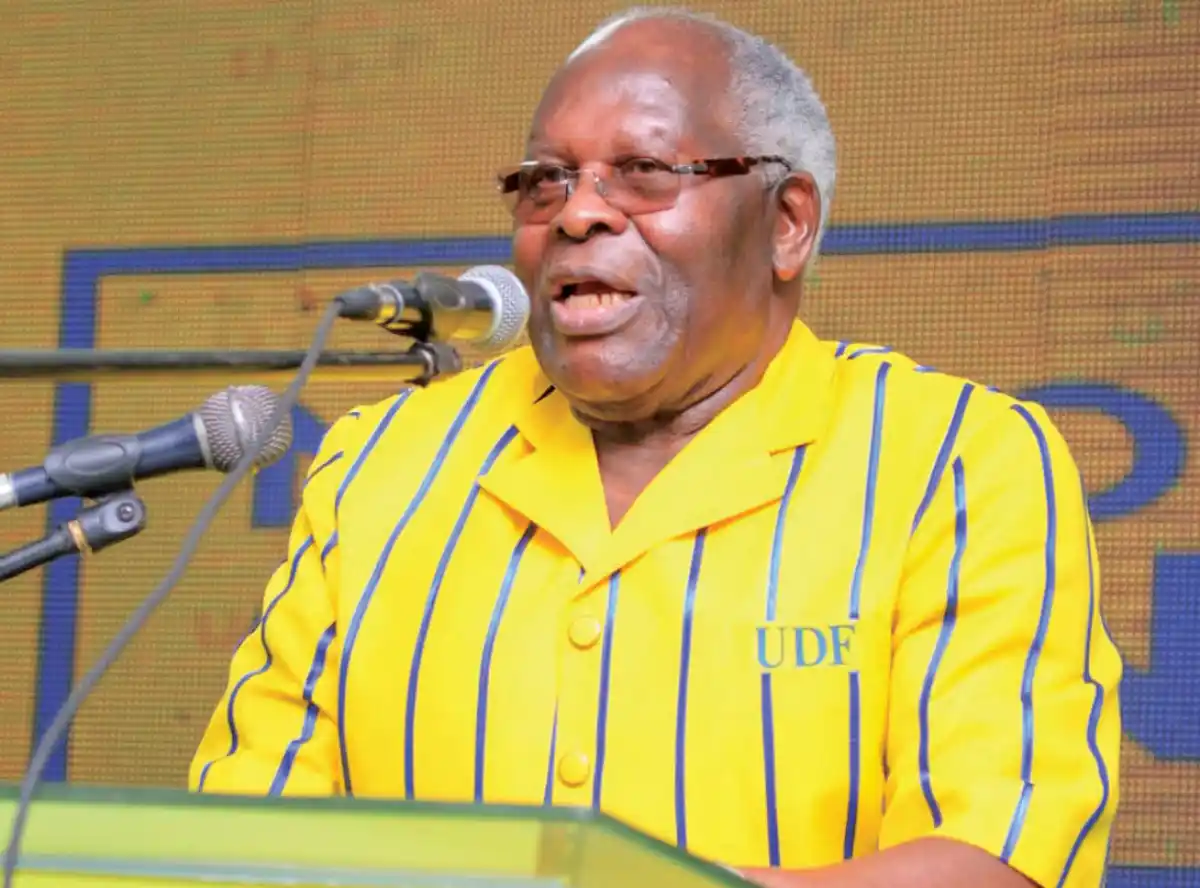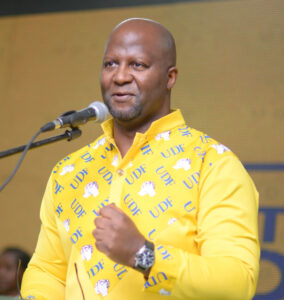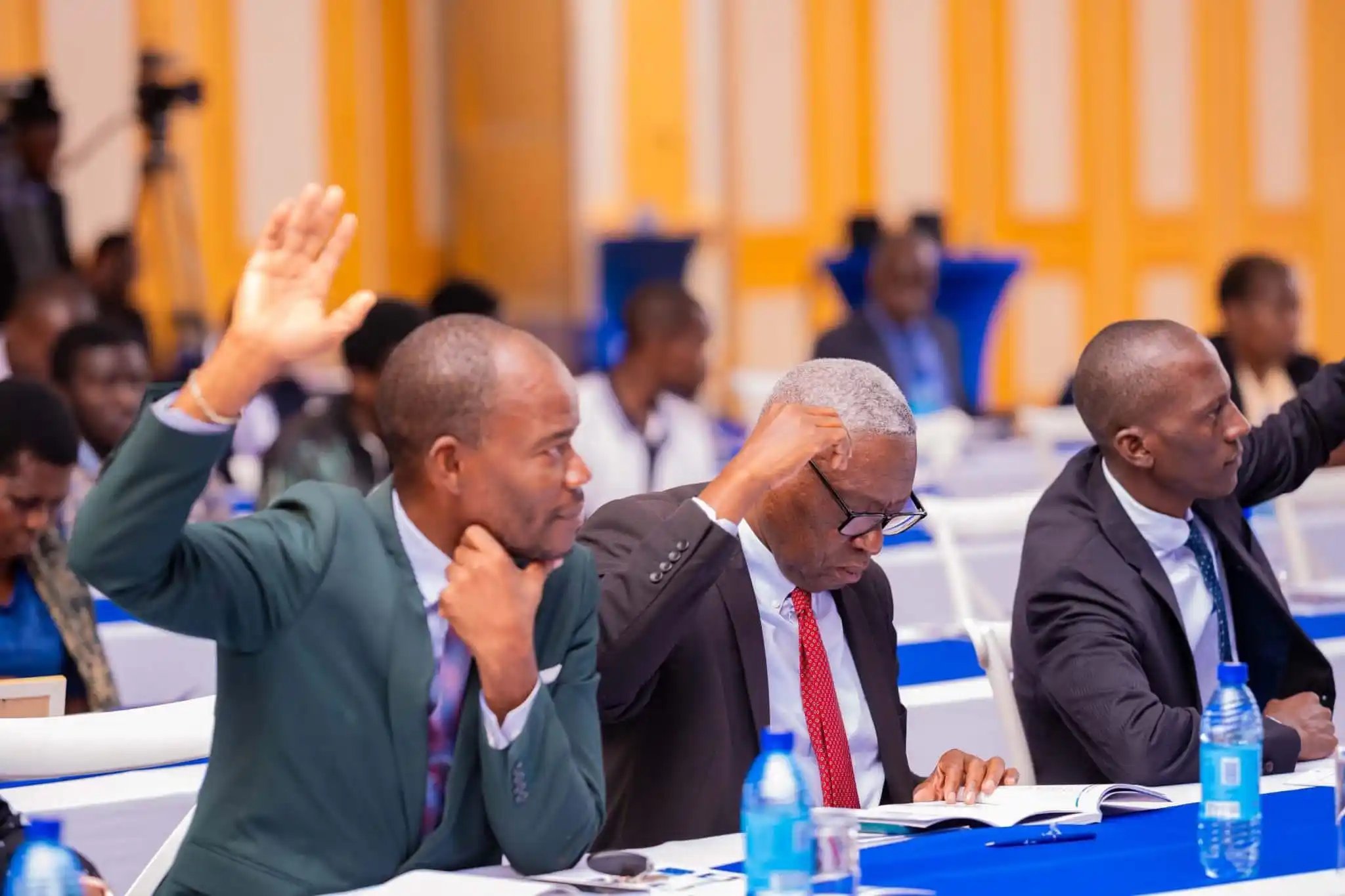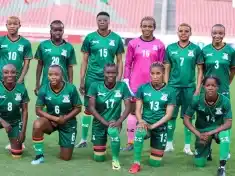

By Cathy Maulidi & Isaac Salima:
Former president Bakili Muluzi has sounded the alarm over Malawi’s staggering debt, calling for a national discussion to address the issue and find solutions.
Speaking in an interview at Comesa Hall following the United Democratic Front’s (UDF) elective convention opening, Muluzi said that the current debt of over K15 trillion is “worrisome” and requires collective action to identify solutions.
“The debts are worrisome and, as a nation, we need to come together and find solutions,” the former president said.
He further warned that, if left unchecked, Malawi risks slipping into bankruptcy, particularly if the debt surpasses K19 trillion or K20 trillion.
Malawi’s debt burden has been a pressing concern, with the National Advocacy Platform recently raising a red flag over the alarming surge in public borrowing, which has increased by K2.54 trillion in just six months.
Meanwhile, economic commentator Velli Nyirongo agreed with Muluzi, saying holding a national discussion on Malawi’s debt crisis is both timely and necessary.
Nyirongo explained that a national dialogue involving various stakeholders—government, private sector, civil society and international partners— would provide an essential platform to explore comprehensive solutions that are both inclusive and sustainable.
“The key to addressing the debt challenge lies in a multi-faceted approach. This discussion should focus on fiscal discipline, reducing wasteful expenditure and improving revenue generation through tax reforms and the promotion of local industries,” he said.
Both Secretary to the Treasury Betchani Tchereni and Minister of Finance Simplex Chithyola Banda were unavailable for comment.

Government spokesperson Moses Kunkuyu differs from Muluzi, stating that the issue should not solely revolve around national dialogue on debt.
“He has mentioned that we are not producing enough, and we cannot avoid examining the genesis of our low productivity.
Where did things go wrong that we can no longer produce, yet we used to produce and trade on par with the United States dollar?” Kunkuyu said.
He added that the only solution is to restore a resilient agricultural economy by enhancing productivity, adding value, and exporting through reliable and affordable transport linkages, thereby achieving import substitution, generating foreign exchange, and creating jobs.
“Once we do that, we will be able to repay our debts with ease and cushion our economy against further borrowing.
“Currently, we are re-establishing the foundations that were broken. As we engage in any dialogue, let us not shy away from discussing the origins of our high levels of borrowing, so that we understand where we went wrong and can avoid repeating past mistakes,” Kunkuyu said.

Meanwhile, Atupele Muluzi, who was endorsed as UDF leader and went unopposed at the elective convention, insisted that people should not think that the party will ride on the coattails of others.
“We will be the torchbearer in next year’s elections. This time we will be all over the country. Malawians need good leadership, and let us serve them well,” Muluzi said.
UDF formed an electoral alliance with the Democratic Progressive Party (DPP) for the court-sanctioned fresh election in 2020.
The Tonse Alliance, which comprised nine parties, went on to win the polls.
Muluzi later stepped aside from the party, saying that he wanted to concentrate on other personal businesses. He handed over the mantle to Lilian Patel, who recently announced that she would not contest.
In her address, Patel called on UDF members to learn from veteran members who, she said, sacrificed for the benefit of the country.
At the convention, Patel was named the party’s chairperson, taking over from Bakili Muluzi, who is now the party’s patron.
Representatives of different political parties, such as DPP, UTM and People’s Transformation Party, graced the event.
By the time we went to press, elections for contested positions were underway.







0 Comments